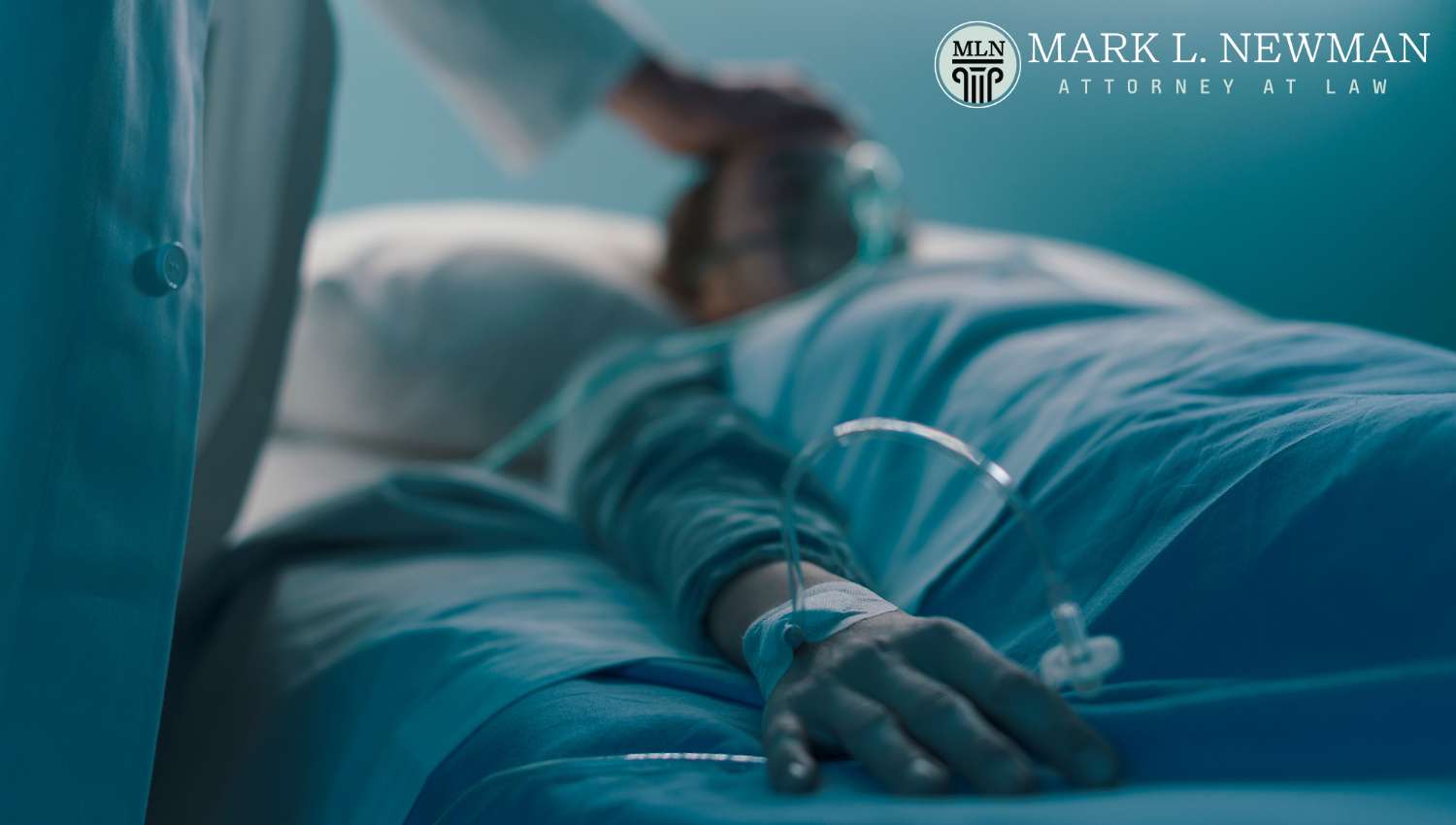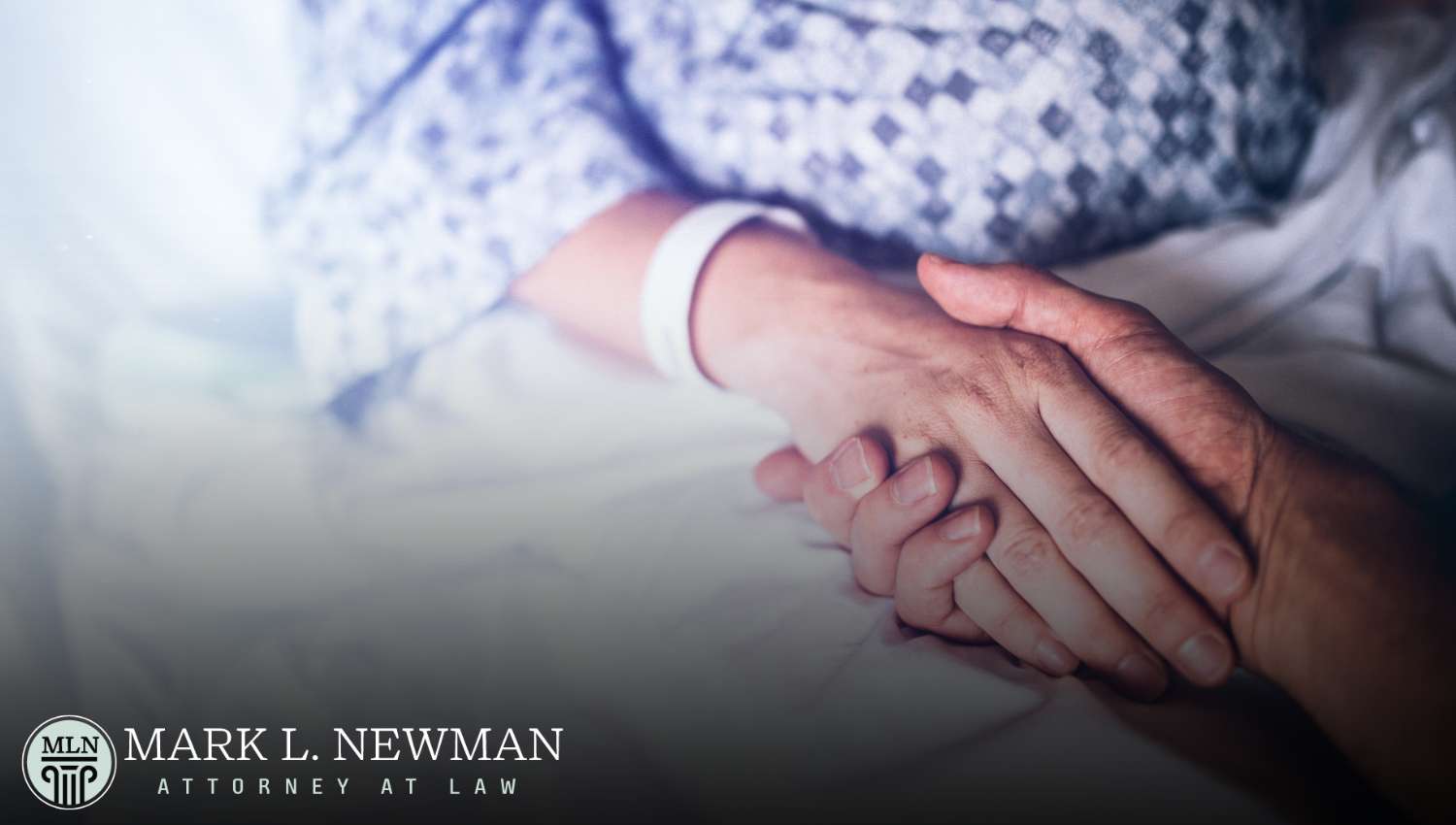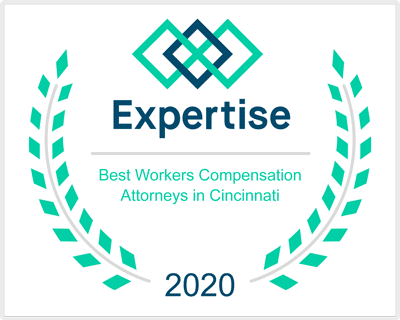Get The Help And Results You Need After An Injury
Home » Cincinnati Workers’ Compensation Lawyer » Types Of Work Injuries » Occupational Diseases
Ohio Workers’ Compensation Lawyer for Occupational Diseases
Cincinnati Workers' Comp Attorney for Work-Related Illnesses
Did you know that you could be entitled to a workers’ compensation claim if your medical condition is related to workplace exposure to harmful toxins?
Workers’ compensation laws in Ohio can be complicated, especially when dealing with an occupational disease diagnosis. For decades, Mark L. Newman has represented worker’s rights and has in-depth knowledge of workers’ compensation laws to tackle even the most challenging cases. If you believe you have an occupational disease case, contact Cincinnati workers’ compensation attorney Mark L. Newman today.

Occupational Diseases and Workers’ Compensation Claims
An injured worker must file a claim for an occupational disease within one year after death or one year after the disability due to the disease began. The statute of limitations for a work-related disability begins on the most recent of the following dates:
- The date the employee first became aware, through medical diagnosis, that they are suffering from an occupationally related disease;
- The date the employee first received medical treatment for such disease;
- The date the employee first quit work due to the disease.
What is an Occupational Illness?
An occupational illness is a disease or condition one contracts due to their work environment. You are entitled to workers’ compensation if your condition is related to workplace conditions.
Those who work around toxic substances are especially susceptible to occupational disease. Many common exposures that cause occupational diseases include exposure to:
- Chemical exposure
- Radiation
- Exposure to dust
- Gas or fumes
- Asbestos
- Infections
- Repeated exposure to vibrating tools
Some common occupational diseases include:
- Coal miners’ pneumoconiosis
- Asbestosis and/or mesothelioma
- Berylliosis
- Chronic Obstructive Pulmonary Disease (COPD)
- Skin ulcerations and infections
- Carpal tunnel syndrome
- Bursitis
- Silicosis
- Certain cancers
- Chronic bronchitis
- Emphysema

Types of Occupational Disease Claims
The type of occupational injury you are diagnosed with can depend on your work duties or environment. For example, if you work around asbestos, you could develop an asbestos-related illness like mesothelioma. Or, if you work in a field that requires heavy lifting, you could develop a musculoskeletal disorder.
Infectious Diseases
Healthcare workers are more susceptible to exposure to infectious diseases related to occupational exposure. Nurses, doctors, lab workers, and administrative workers in the healthcare industry are all at risk of being exposed to infectious diseases.
Direct or indirect contact, droplets, or airborne can transmit these diseases. Infections transferred through direct or indirect contact may not affect the person carrying the infection but affect a more susceptible individual.
MRSA is a common infection transmitted through contact found in almost every medical facility. You could be eligible for a workers’ compensation claim if you have been diagnosed with an infectious disease directly associated with workplace exposure.
Respiratory Illnesses
An occupational respiratory illness is directly related to repeatedly breathing in certain toxins. The most common workplaces that lend themselves to respiratory illnesses are coal mines, factories, or any area with high amounts of dangerous substances.
When these toxins are inhaled over a long period, they can irritate the lining of your lungs. Signs of respiratory illnesses can vary according to your health, environment, and type of disease but can generally appear similar to allergies or cold or flu symptoms like runny nose, cough, scratchy throat, fever, tight chest, chest pain, body or muscle aches, and breathing problems.
If untreated, your respiratory infection can develop into chronic obstructive pulmonary disease (COPD). If you work in a setting where you might be susceptible to a respiratory illness, it’s best to avoid smoking, as this can worsen your symptoms.
Cancer
Workers exposed to carcinogenic (cancer-causing) agents can develop occupational cancers. Exposure to various industrial chemicals, dust, metals, and combustion products, such as asbestos or diesel exhaust, are known to cause cancer.
Diseases related to asbestos exposure are also on the rise. Cancers like lung cancer, gastrointestinal cancer, cancer of the larynx or pharynx, and mesothelioma are all associated with asbestos exposure.
If you’ve been exposed to different forms of radiation or work as a painter or in aluminum production, you are also at risk of developing occupational-related cancer. When working with or around carcinogenic agents, it’s best to follow the safety practices in your workplace.

Contact Dermatitis
Contact dermatitis is one of the most common occupational skin diseases. Due to the various triggers in the environment that cause dermatitis, it makes up over 15% of occupational diseases. Those who have contracted dermatitis show symptoms in the form of rashes, itchiness, or hives.
The best way to avoid dermatitis in your work environment is to wear protective gear such as gloves (powder-free) and use protective equipment and barrier creams.
Musculoskeletal Disorders (MSD)
Musculoskeletal disorders (MSD) affect the muscles, nerves, tendons, joints, cartilage, and spinal discs. These injuries are caused by excessive bending, crawling, climbing, reaching, twisting, overexertion, or repetitive motion.
Developing a musculoskeletal disease does not necessarily mean working in a dangerous environment. For example, carpal tunnel or tendonitis falls under this category of occupational illnesses. You could develop a musculoskeletal disorder if your job requires repetitive movements, awkward positions, high work demands, or a lack of breaks.
Workers’ Compensation Benefits for Occupational Diseases
You may be entitled to workers’ compensation benefits if you contract an occupational disease at work. In addition to lost wages, the Ohio Bureau of Workers Compensation (BWC) pays medical benefits related to medical treatment for an occupational disease. You could also be entitled to death benefits if you lost a loved one due to an occupational illness.
How Do You Prove Occupational Disease for Workers’ Compensation?
To establish an occupational disease claim, you must be able to prove that your illness is causally related to your work activity. You will need a statement from your doctor to prove that your occupational disease is related to your work activity or environment.

Let Experienced Ohio Workers’ Comp Lawyer Mark L. Newman Handle Your Occupational Disease Claim
If you have been diagnosed with an occupational illness, you may be entitled to receive workers’ compensation benefits. Mark L. Newman has been helping those injured at work receive benefits and compensation from workers’ compensation claims since 1989. With decades of experience, Mark understands the complex Ohio workers’ compensation system.
Missing work is stressful enough. Let Mark L. Newman handle your workers’ compensation claim from the beginning. Call our office today at (513) 533-2009 or contact us online.
Talk To A Knowledgeable Ohio Workers’ Compensation Attorney
- Cincinnati Workers’ Comp Lawyer
- What to Do When You Are Injured at Work in Ohio
- Understanding the Workers’ Compensation Process
- Workers’ Comp Settlements
- Full Weekly Wage vs. Average Weekly Wage
- Types of Workers’ Compensation Benefits
- Types Of Work Injuries
- High-Risk Occupations for Workers’ Comp Injuries
- Work-Related Wrongful Death
- Workers’ Comp Appeals
- Workers’ Comp FAQs
- Cincinnati Workers’ Comp Lawyer
- What to Do When You Are Injured at Work in Ohio
- Understanding the Workers’ Compensation Process
- Workers’ Comp Settlements
- Full Weekly Wage vs. Average Weekly Wage
- Types of Workers’ Compensation Benefits
- Types Of Work Injuries
- High-Risk Occupations for Workers’ Comp Injuries
- Work-Related Wrongful Death
- Workers’ Comp Appeals
- Workers’ Comp FAQs
Injury or disability?
Contact Us Now
Mark L. Newman Attorney at Law
3074 Madison Road Suite 2N
Cincinnati, OH 45209
Phone: (513) 533-2009
Fax: (513) 991-6439
© 2023 by Mark L. Newman, Attorney at Law.
All rights reserved. Disclaimer | Site Map | Privacy Policy




